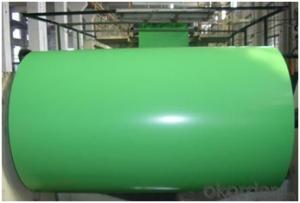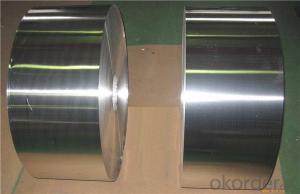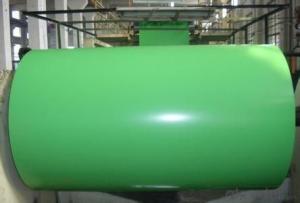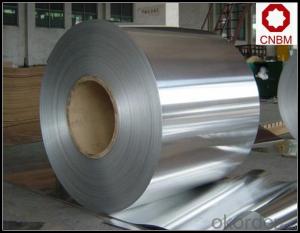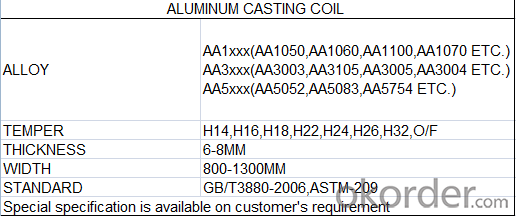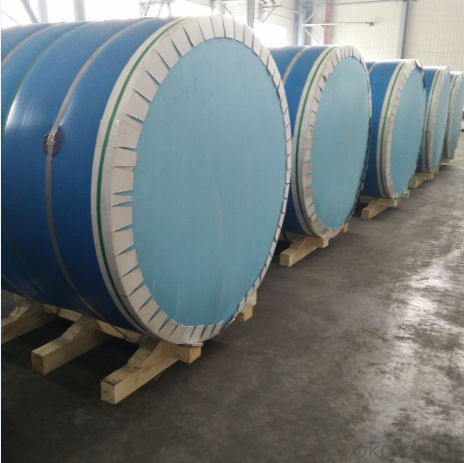Aluminum Master Cast Coil for Manufacturer
- Loading Port:
- Shanghai
- Payment Terms:
- TT OR LC
- Min Order Qty:
- 100 m.t.
- Supply Capability:
- 100000 m.t./month
OKorder Service Pledge
OKorder Financial Service
You Might Also Like
1.Structure of Aluminum Master Cast Coil for Manufacturer:
Aluminum Master Cast Coil for Manufacturer is used in the factories that produce aluminum coil from 0.2mm to 6mm by thickness. Hot rolled y cold rolled son available. The thickness of Aluminum Casting Coil for thin coil is about 6-8mm. You can choose the alloys as your using and we will do our best to meet your requests.
2.Main Features of the Aluminum Master Cast Coil for Manufacturer:
• Smooth surface
• High manufacturing accuracy
• High strength of extension and yield
• Low tolerance
• Strict quality control
• Well packaged
3. Aluminum Master Cast Coil for Manufacturer
4. Production Process of Aluminum Casting Coil for thin coil and sheet
Cold Rolled
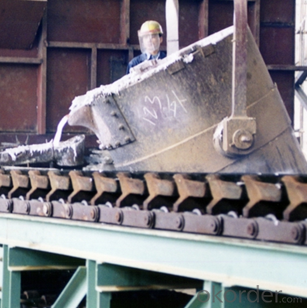
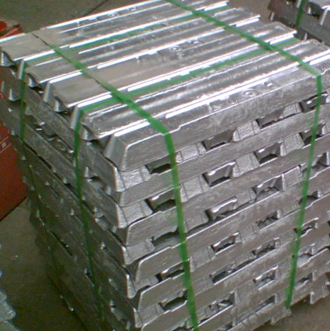
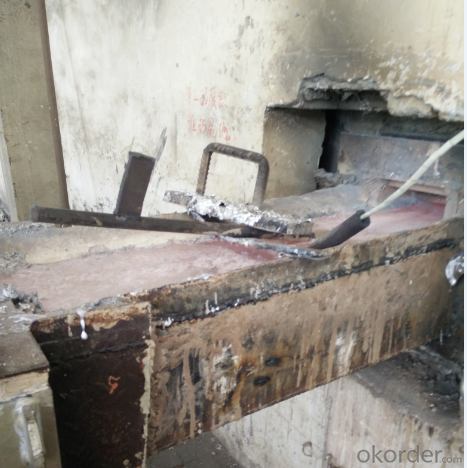
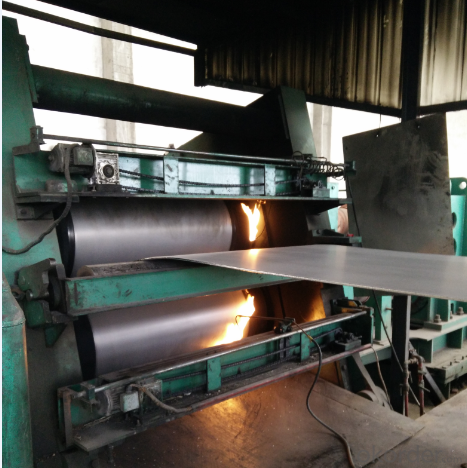
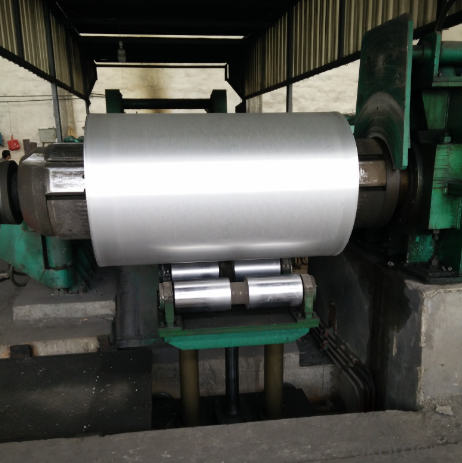
Hot rolled
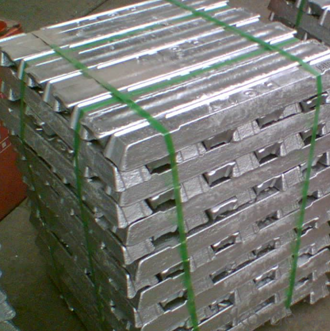
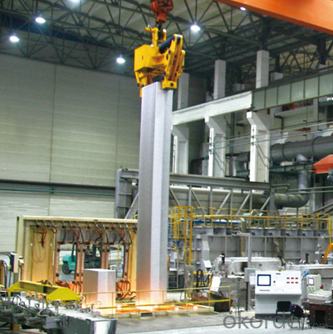
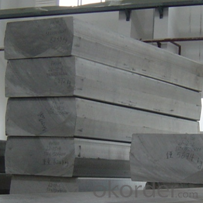
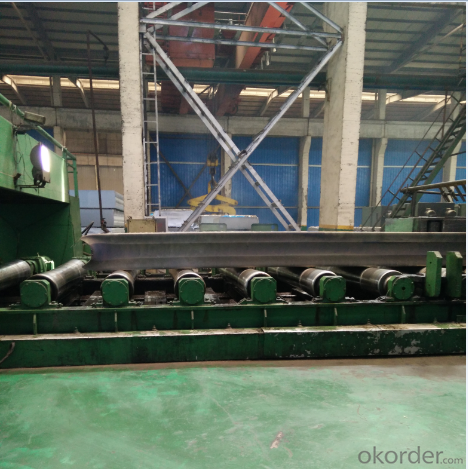
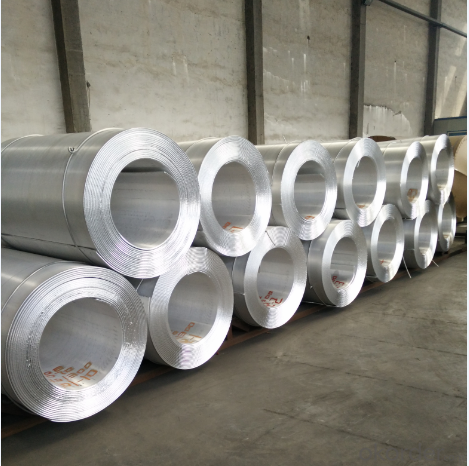
5.FAQ
We have organized several common questions for our clients,may help you sincerely:
① What is the MOQ of Aluminum Master Cast Coil for Manufacturer
Usually the MOQ is 150 tons, but we also can make solution according to clients’ situation.
②How about your company?
A world class manufacturer & supplier of aluminum coil and alloy blanks. Aluminum production base is comprised of 18 aluminum annealers, 10 coil and foil mills, 4 continuous production lines, 2 hot rolling production line and 3 prepainted lines.
Export 5000 tons per month to Asia, America and Middle East. Always do the best for our clients.
③Can you guarantee the quality of the products?
We are responsible for the quality of materials in a reasonable period of time to get a long-term cooperation with clients and we are glad to arrange and coordinate any third party inspection for you.
④What is the delivery time after purchase?
15 day with normal specification after receiving client’s deposit or correct LC
- Q:How are aluminum coils used in the production of beverage cans?
- The production of beverage cans relies heavily on aluminum coils, which serve as a critical component. These coils, essentially flat and thin aluminum sheets, are wound into a coil shape. To begin with, the aluminum coils undergo unwinding and are fed into a machine that applies a thin layer of protective material, typically a polymer. This coating serves to prevent any interaction between the aluminum and the beverage, thereby preserving its taste and quality. Subsequently, the coated aluminum coils pass through a series of rollers that gradually shape them into a cylindrical form. This process, known as cupping, involves transforming the flat coil into a cup-like shape, which ultimately becomes the body of the beverage can. Once the cups are formed, they undergo trimming to achieve the correct height and diameter. To minimize waste, any excess aluminum is recycled. Following this, the cups are cleaned and rinsed thoroughly to eliminate any impurities. After the cleaning process, the cups are conveyed through another machine that applies a liquid compound to their inner surface. This compound acts as a barrier, preventing any potential reactions or contamination between the aluminum and the beverage. Following this step, the cups are shaped into the final can body by being pressed between a top and bottom mold. These molds are designed to give the cans their distinctive shape and ridges. Any excess aluminum is trimmed off, and the cans undergo another round of cleaning to ensure their purity. Finally, the cans are sent for filling with the desired beverage, sealing, and labeling. Once these processes are completed, the cans are packaged and dispatched for distribution. In conclusion, aluminum coils are an essential element in the production of beverage cans, providing the raw material from which the cans are made. Through a sequence of procedures encompassing coating, cupping, shaping, and cleaning, the aluminum coils are transformed into the final can bodies. These cans are then filled, sealed, labeled, and prepared for consumption.
- Q:Are aluminum coils suitable for electrical transformers?
- Electrical transformers can indeed utilize aluminum coils. Aluminum, being a lightweight and cost-effective material, presents numerous advantages when it comes to transformer construction. Its electrical conductivity is outstanding, comparable to that of copper, which ensures efficient power transfer. Moreover, aluminum coils exhibit lower resistance than their copper counterparts, thereby reducing power losses and enhancing energy efficiency. The utilization of aluminum coils also aids in weight reduction, resulting in easier handling and transportation. Nonetheless, due to their marginally lower conductivity, aluminum coils necessitate larger cross-sections compared to copper coils. Consequently, transformers employing aluminum coils may exhibit a slightly larger size. Nevertheless, overall, aluminum coils serve as a viable and extensively employed substitute for copper coils in electrical transformers, offering cost savings, high conductivity, and improved energy efficiency.
- Q:How are aluminum coils inspected for quality control?
- Aluminum coils are inspected for quality control through various methods including visual inspection, dimensional checks, and non-destructive testing techniques such as ultrasonic testing, eddy current testing, and X-ray inspection. These inspections help to ensure that the coils meet the required specifications, have no visible defects, and possess the desired mechanical properties before they are used in various applications.
- Q:How are aluminum coils used in the production of automotive radiators?
- Due to their exceptional heat transfer properties and lightweight nature, aluminum coils are widely utilized in the production of automotive radiators. These coils are typically crafted from high-quality aluminum alloy, which offers superior thermal conductivity compared to other materials. In the manufacturing process, aluminum coils undergo initial shaping to achieve the desired configuration for the radiator's core. This can be accomplished through various methods, such as extrusion or rolling. Once shaped, the coils are meticulously stacked and bonded together to create a robust and efficient heat exchanger. The primary function of aluminum coils in automotive radiators is to facilitate the transfer of heat from the engine coolant to the surrounding air. As the hot coolant flows through the radiator's tubes, the aluminum coils efficiently absorb and disperse this heat. The coils' large surface area, combined with their excellent thermal conductivity, ensures effective heat dissipation. Additionally, the lightweight nature of aluminum makes it an ideal material for automotive radiators. By reducing the weight of vehicles, aluminum coils contribute to improved fuel efficiency and overall performance. Compared to traditional copper or brass counterparts, aluminum coils offer a lighter radiator. Furthermore, aluminum coils provide several other advantages in radiator production. They possess corrosion-resistant properties, which enhance the radiator's lifespan and durability. Aluminum coils also enable more flexible designs, allowing for the creation of radiators with intricate shapes and configurations to accommodate various vehicle models. In conclusion, aluminum coils play a critical role in the production of automotive radiators. Their exceptional heat transfer properties, lightweight nature, corrosion resistance, and design flexibility make them an optimal choice for manufacturing efficient and reliable radiators for automobiles.
- Q:Can aluminum coils be fabricated or formed into different shapes?
- Aluminum coils possess the capability to be transformed into diverse forms through fabrication or shaping. Thanks to its malleability, aluminum can be effortlessly manipulated and molded without any fear of cracking or rupturing. Various techniques including bending, rolling, and stamping can be employed to alter the shape and design of the coils. Consequently, these coils can be subsequently processed or joined together to manufacture products with distinct geometries, such as automotive parts, kitchenware, electrical elements, or even architectural edifices. The pliability of aluminum as a material opens up a broad spectrum of possibilities in terms of configuring and giving it different structures.
- Q:Can aluminum coils be used in the production of railway tracks?
- No, aluminum coils cannot be used in the production of railway tracks. Railway tracks are typically made of steel due to its strength, durability, and ability to withstand heavy loads and high temperatures. Aluminum, although lightweight, lacks the necessary strength and toughness required for railway track applications.
- Q:Can aluminum coils be used in the production of architectural façades?
- Aluminum coils are indeed suitable for the production of architectural façades. Façades made of aluminum are highly favored due to their durability, lightweight characteristics, and aesthetic attractiveness. By incorporating aluminum coils into façade manufacturing, customization becomes effortless, as they can be readily molded and fashioned into different designs and profiles. Moreover, aluminum exhibits resistance against corrosion, rendering it suitable for outdoor use. Furthermore, it possesses exceptional thermal and acoustic insulation properties, thereby enhancing energy efficiency and soundproofing. In conclusion, aluminum coils offer a versatile and efficient choice for the creation of architectural façades.
- Q:Can aluminum coils be painted?
- Indeed, it is possible to paint aluminum coils. By applying paint to aluminum coils, an extra layer of protection against corrosion can be achieved, along with an improvement in their aesthetic appearance. Nevertheless, it is crucial to properly prepare the surface prior to painting in order to ensure a strong adhesion and durability. This typically involves a thorough cleaning of the coils, the removal of any existing paint or coatings, and the application of a primer specifically designed for aluminum surfaces. Once the primer has dried, a suitable paint can be applied using a brush, roller, or spray. For optimal and long-lasting results, it is advisable to use a high-quality paint specially formulated for metal surfaces. Additionally, following the instructions provided by the manufacturer and taking into account any environmental factors, such as temperature and humidity, that could impact the painting process, is of utmost importance.
- Q:How are aluminum coils used in the production of aircraft components?
- Aluminum coils are used in the production of aircraft components as they can be easily formed, shaped, and joined together to create various parts such as fuselage panels, wings, and structural elements. The coils are typically processed through a series of steps including cutting, bending, and welding to fabricate these components. The lightweight and high strength properties of aluminum make it an ideal choice for aircraft applications, as it helps to reduce the overall weight of the aircraft while maintaining structural integrity.
- Q:Can aluminum coils be used in curtain wall systems?
- Yes, aluminum coils can be used in curtain wall systems. Aluminum is a popular material choice for curtain walls due to its lightweight nature, durability, and corrosion resistance. Aluminum coils can be easily formed and shaped to create the desired profiles for curtain wall systems. Additionally, aluminum is available in a wide range of colors and finishes, allowing for customization and design flexibility. The use of aluminum coils in curtain wall systems also offers energy efficiency benefits, as aluminum has good thermal conductivity properties. Overall, aluminum coils are a suitable and commonly used material in the construction of curtain wall systems.
1. Manufacturer Overview |
|
|---|---|
| Location | |
| Year Established | |
| Annual Output Value | |
| Main Markets | |
| Company Certifications | |
2. Manufacturer Certificates |
|
|---|---|
| a) Certification Name | |
| Range | |
| Reference | |
| Validity Period | |
3. Manufacturer Capability |
|
|---|---|
| a)Trade Capacity | |
| Nearest Port | |
| Export Percentage | |
| No.of Employees in Trade Department | |
| Language Spoken: | |
| b)Factory Information | |
| Factory Size: | |
| No. of Production Lines | |
| Contract Manufacturing | |
| Product Price Range | |
Send your message to us
Aluminum Master Cast Coil for Manufacturer
- Loading Port:
- Shanghai
- Payment Terms:
- TT OR LC
- Min Order Qty:
- 100 m.t.
- Supply Capability:
- 100000 m.t./month
OKorder Service Pledge
OKorder Financial Service
Similar products
New products
Hot products
Hot Searches
Related keywords







